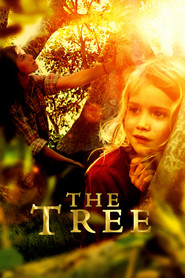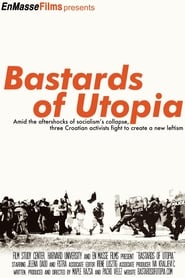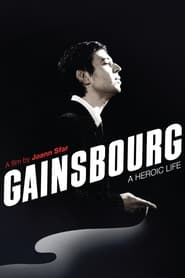New Drama Movies on Kanopy - Page 194
-
Brooklyn's Finest
2010
Brooklyn's Finest
2010
star 6.3Enforcing the law within the notoriously rough Brownsville section of the city and especially within the Van Dyke housing projects is the NYPD's sixty-fifth precinct. Three police officers struggle with the sometimes fine line between right and wrong. -
The Tree
2010
The Tree
2010
star 6.3The O'Neills lived happily in their house in the Australian countryside. That was until one day fate struck blindly, taking the life of Peter, the father, leaving his grief-stricken wife Dawn alone with their four children. Among them, eight-year-old Simone denies this reality. She is persuaded that her father still lives in the giant fig tree growing near their house and speaks to her through its leaves. But the tree becomes more and more invasive and threatens the house. It must be felled. Of course, Simone won't allow it. -
Bastards of Utopia
2010
Bastards of Utopia
2010
star 7Three Croatian activists struggle to change the world. As children, they lived through the violent collapse of Yugoslavia. But now, amid the aftershocks of socialism's failure, they fight in their own way for a new leftism. In the middle of the struggle, a skeptical American is won over by their cause and even goes to jail with them. The activists, whether clashing with police or squatting in an old factory, risk everything to live their politics. But as the setbacks mount, will they give up the fight? The film, shot during years of fieldwork with a Croatian anarchist collective, applies EnMasseFilm's unique blend of observation, direct participation and critical reflection to this misunderstood political movement. Its portrayal of activism is both empathetic and unflinching -- an engaged, elegant meditation on the struggle to re-imagine leftist politics and the power of a country's youth. -
Gabi on the Roof in July
2010
star 5An ambitious painter on the verge of a big break confronts his moral decay when his idealist, hell-raising, younger sister comes to stay with him in New York City for the summer. -
The Robber
2010
The Robber
2010
star 6.5A champion marathoner leads a double life as a serial bank robber, sprinting between fixes (and away from police cavalcades) as many as three times a day. -
The Killer Inside Me
2010
The Killer Inside Me
2010
star 5.8Deputy Sheriff Lou Ford is a pillar of the community in his small west Texas town, patient and apparently thoughtful. Some people think he is a little slow and maybe boring, but that is the worst they say about him. But then nobody knows about what Lou calls his "sickness": He is a brilliant, but disturbed sociopathic sadist. -
Putty Hill
2010
Putty Hill
2010
star 5.5Friends and family of Cory, a young man who has died of an overdose, gather at a Baltimore-area karaoke bar for his wake and compare stories about him. Gradually, as it becomes clear that there are many holes in their recollections about Cory, they fill in the blanks by talking about things that reveal aspects of their own lives. Among those mourning him and searching for meaning are his cousin Jenny, his sister Zoe and his brother James. -
Centurion
2010
Centurion
2010
star 6.2Britain, A.D. 117. Quintus Dias, the sole survivor of a Pictish raid on a Roman frontier fort, marches north with General Virilus' legendary Ninth Legion, under orders to wipe the Picts from the face of the Earth and destroy their leader, Gorlacon. -
Shutter Island
2010
Shutter Island
2010
star 8.2World War II soldier-turned-U.S. Marshal Teddy Daniels investigates the disappearance of a patient from a hospital for the criminally insane, but his efforts are compromised by troubling visions and a mysterious doctor. -
180° South
2010
180° South
2010
star 7.2The film follows adventurer Jeff Johnson as he retraces the epic 1968 journey of his heroes Yvon Chouinard and Doug Tompkins to Patagonia. -
Hurricane Season
2010
Hurricane Season
2010
star 6.6Based on true events amid the wreckage and chaos dealt by Hurricane Katrina; one basketball coach in Marrero, Louisiana just will not give up. Coach Al Collins, gathers other players from hard-hit schools and builds a team actually worthy enough to go to the state playoffs. -
Secret Reunion
2010
Secret Reunion
2010
star 6.4Two spies share a secret bond, despite their loyalties. A North Korean assassin is sent to Seoul to kill a dissident, but instead he teams up with a South Korean agent in search for revenge. -
14 Blades
2010
14 Blades
2010
star 6.3Commander Qinglong is the loyal leader of the assassin group that serves the emperor. But when his allies plan a rebellion against the ruler, he finds himself in danger. -
I Love You Phillip Morris
2010
star 6.4Steven Russell leads a seemingly average life – an organ player in the local church, happily married to Debbie, and a member of the local police force. That is until he has a severe car accident that leads him to the ultimate epiphany: he’s gay and he’s going to live life to the fullest – even if he has to break the law to do it. Taking on an extravagant lifestyle, Steven turns to cons and fraud to make ends meet and is eventually sent to the State Penitentiary where he meets the love of his life, a sensitive, soft-spoken man named Phillip Morris. His devotion to freeing Phillip from jail and building the perfect life together prompts him to attempt (and often succeed at) one impossible con after another. -
To the Sea
2010
To the Sea
2010
star 6.9Before leaving for Rome with his mother, five year old Natan is taken by his father, Jorge, on an epic journey to the pristine Chinchorro reef off the coast of Mexico. As they fish, swim, and sail the turquoise waters of the open sea, Natan discovers the beauty of his Mayan heritage and learns to live in harmony with life above and below the surface, as the bond between father and son grows stronger before their inevitable farewell. -
Incident by a Bank
2010
Incident by a Bank
2010
star 6.6Incident by a bank is a detailed account of a failed bank robbery: A single take where over 90 people perform a meticulous choreography for the camera. The film recreates an actual event that took place in Stockholm in June 2006. -
Hesher
2010
Hesher
2010
star 6.8A young boy has lost his mother and is losing touch with his father and the world around him. Then he meets Hesher who manages to make his life even more chaotic. -
Gainsbourg: A Heroic Life
2010
star 6.9A glimpse at the life of French singer Serge Gainsbourg, from growing up in 1940s Nazi-occupied Paris through his successful song-writing years in the 1960s to his death in 1991 at the age of 62. -
The First Beautiful Thing
2010
star 7.3The film tells the story of the Michelucci family, from the nineteen-seventies to the present day: the central character is the stunningly beautiful Anna, the lively, frivolous and sometimes embarrassing mother of Bruno and Valeria. Everything begins in the Summer of 1971, at the annual Summer beauty pageant held at Livorno’s most popular bathing establishment. Anna is unexpectedly crowned “Most Beautiful Mother”, unwittingly stirring the violent jealousy of her husband. From then on, chaos strikes the family and for Anna, Bruno and his sister Valeria, it is the start of an adventure that will only end thirty years later. -
Sex & Drugs & Rock & Roll
2010
star 6.3A biography of Ian Dury, who was stricken with polio at a young age and defied expectations by becoming one of the founders of the punk-rock scene in Britain in the 1970s.
 Netflix
Netflix
 Amazon Prime Video
Amazon Prime Video
 Apple iTunes
Apple iTunes
 Apple TV Plus
Apple TV Plus
 Disney Plus
Disney Plus
 Google Play Movies
Google Play Movies
 Paramount Plus
Paramount Plus
 Hulu
Hulu
 HBO Max
HBO Max
 YouTube
YouTube
 fuboTV
fuboTV
 Peacock
Peacock
 Peacock Premium
Peacock Premium
 Amazon Video
Amazon Video
 The Roku Channel
The Roku Channel
 AMC+
AMC+
 Kocowa
Kocowa
 Hoopla
Hoopla
 The CW
The CW
 Vudu
Vudu
 Starz
Starz
 Showtime
Showtime
 PBS
PBS
 Pantaflix
Pantaflix
 FXNow
FXNow
 Tubi TV
Tubi TV
 Kanopy
Kanopy
 Comedy Central
Comedy Central
 Crunchyroll
Crunchyroll
 Microsoft Store
Microsoft Store
 Redbox
Redbox
 Sun Nxt
Sun Nxt
 ABC
ABC
 DIRECTV
DIRECTV
 Crackle
Crackle
 Fandor
Fandor
 Plex
Plex



















